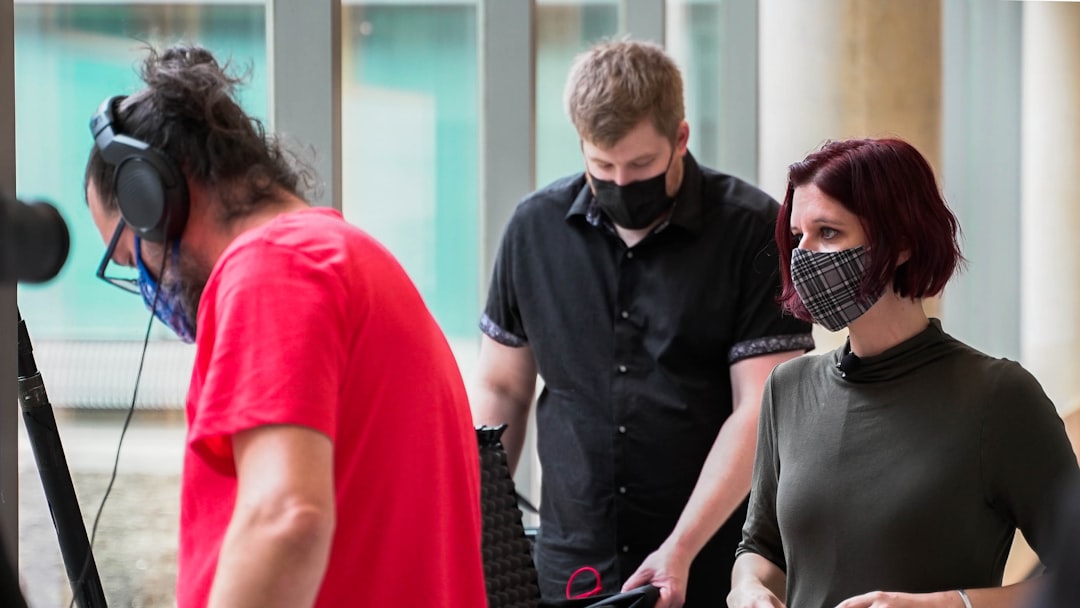Finding the right talent in the tech industry can be a challenging task.
Then when you finally get that unicorn CV land in your inbox, you then need to make sure you interview them in the most efficient and effective way to enable you to make the most informed hiring decision you can.
Attracting someone to send you their CV is one thing, interviewing them is a completely different skill.
So to help you, today we're going to explore a range of effective interview techniques that will help you identify top-notch IT candidates who are the perfect fit for your organisation's needs.
Preparing For The Interview:
Before diving into the interview process, it's crucial to lay a solid foundation.
Start by thoroughly understanding the job requirements and technical skills needed for the position.
This will allow you to craft targeted questions that assess the candidate's suitability.
Additionally, reviewing the candidate's resume and application materials can give you valuable insights into their experience and qualifications.
Creating a structured interview plan and preparing a list of relevant technical questions will help you stay organised and ensure a consistent evaluation process.
Structuring The Interview Process:
A well-structured interview process sets the stage for an effective evaluation.
Begin by making the candidate feel comfortable with an introduction and icebreaker questions.
This helps to establish rapport and create a positive atmosphere.
Next, conduct behavioral-based interviews to gain insights into the candidate's past experiences and problem-solving skills.
To assess technical competence, consider incorporating coding exercises or practical assignments.
Additionally, evaluating cultural fit through situational and scenario-based questions will help you gauge how well the candidate aligns with your company's values.
Asking the Right Questions:
The questions you ask during an interview play a critical role in assessing a candidate's capabilities.
Open-ended questions are an excellent way to encourage candidates to provide detailed responses.
For example, you might ask:
"Tell me about a challenging IT project you worked on and how you overcame obstacles."
Probing questions allow you to delve deeper into a candidate's knowledge and problem-solving abilities.
They can help you understand the candidate's approach to challenges and how they think through complex problems.
For instance, you could ask:
"Can you explain your approach to troubleshooting a network issue?"
Evaluating Technical Skills:
Evaluating the technical skills of IT candidates requires a targeted approach.
Practical exercises and coding challenges can be valuable tools for assessing coding abilities.
Ask candidates to solve coding problems or complete programming tasks relevant to the role they are applying for.
Whiteboard sessions provide an opportunity to evaluate problem-solving and critical thinking skills in real-time.
Additionally, presenting technical case studies or scenario-based questions can help you gauge how candidates apply their skills in real-world situations.
Assessing Soft Skills and Cultural Fit:
In addition to technical prowess, assessing soft skills and cultural fit is essential for a successful hire.
Communication skills are particularly important in the IT field.
During the interview, observe how candidates communicate their thoughts and ideas clearly and concisely.
Teamwork and collaboration are also crucial in today's workplace.
Ask candidates about their experiences working in teams and how they have contributed to collaborative projects.
Look for indications of adaptability and a willingness to learn new technologies, as the IT landscape is constantly evolving.
Lastly, analysing a candidate's problem-solving and decision-making abilities can give you insights into their suitability for the role.
Observing Non-Verbal Communication:
Non-verbal communication can provide valuable insights during an interview.
Pay attention to the candidate's body language and facial expressions.
Are they engaged and enthusiastic? Do they maintain eye contact?
Active listening is another crucial aspect.
Note whether the candidate is truly engaged in the conversation, actively listening and responding appropriately.
Post-Interview Evaluation:
After each interview, it's essential to take detailed notes while the conversation is still fresh in your mind.
Document the candidate's strengths, weaknesses, and any outstanding qualities.
Collaborate with the hiring team to discuss and compare candidates based on the evaluation criteria you've established.
Providing timely feedback to candidates is crucial to maintaining a positive candidate experience and demonstrating professionalism.
Conclusion:
Effective interview techniques are vital for recruiters to identify top IT talent.
By employing a combination of technical and behavioral questions, recruiters can assess a candidate's skills, experience, and cultural fit.
Remember to prepare well, structure the interview process, ask the right questions, evaluate technical skills, assess soft skills and cultural fit, and observe non-verbal communication cues.
By following these best practices, you'll be better equipped to make informed hiring decisions that lead to long-term success.
Implementing effective interview techniques is key to building a skilled and productive IT team.
Continually refine your interviewing skills by practicing these techniques.
For more in-depth insights and guidance, check out our additional resources on interviewing and hiring the right IT candidates.
Remember, investing time and effort in the interview process pays off in the form of exceptional hires and organisational growth.


















